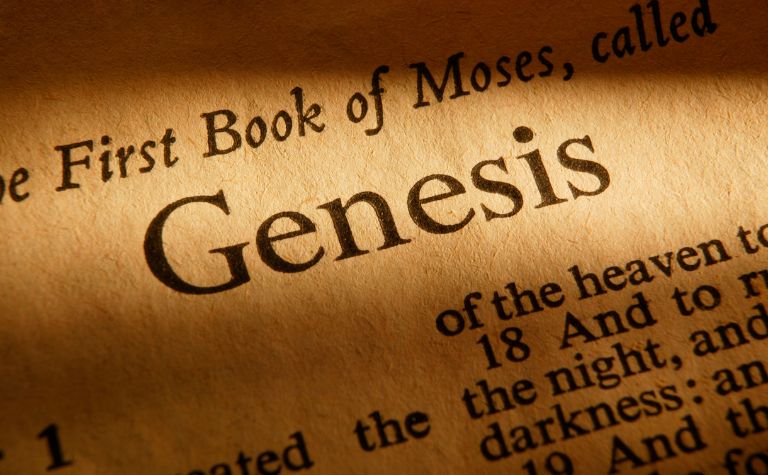A serpent plays an important role in Genesis, the first book of the Bible, and in Revelation, the last book. Scripture also mentions them in other places in the Old and New Testaments that are important to doctrines like sin and salvation. However, the term “serpent” is not a scientific designation, which leaves many readers to wonder what kind of creature the Bible refers to when it uses the word.
In the Bible, serpents are snakes. The Old Testament uses the Hebrew word for “snake” (nachash) to describe an animal. In Genesis 3, Satan embodies a snake when talking with Eve. The New Testament uses the Greek word for “snake” (ophis) to describe an animal, evil people, and Satan.
Why do some Bible translations say “serpent” not “snake”? Which translations say “snake”? What does the Apostle Paul say about the serpent? What does John say about it in Revelation? What does Jesus say about serpents? Keep reading to learn the answers to these questions and others.
Also see Who Was the Serpent in the Garden of Eden? to learn more.

Why do some translations say “serpent” not “snake”?
“Serpent” is the traditional English translation of the Hebrew word that first appears at the beginning of Genesis 3:1. “Now the serpent was more crafty than any other beast of the field that the Lord God had made” (ESV). The NIV, NLT, KJV, NKJV, and the NASB all translate the word “serpent.” However, a few translations choose the word “snake” instead.
| Translation | Genesis 3:1a |
|---|---|
| CEV | The snake was sneakier than any of the other wild animals that the LORD God had made. |
| GNT | Now the snake was the most cunning animal that the LORD God had made. |
| NAB | Now the snake was the most cunning of all the wild animals that the LORD God had made. |
One Bible scholar writes, “The first serpent in Scripture is the subtle creature of Gn. 3, used by Satan to alienate man from God (Rom. 16:20; 2 Cor. 11:3), controlled by the devil like the demons in men and swine in NT days.”
He continues: “For its part, the serpent was put under a curse that it would never rise above its (already customary) creeping posture (Gn. 3:14). The serpent thus remained the biblical symbol of deceit (Mt. 23:33), and the arch-deceiver himself is ‘that old serpent’ (Rev. 12:9; 14-14; 20:2).” [1]
The serpent or snake in Paul’s writings
The Bible identifies the serpent with Satan in multiple passages. The Apostle Paul wrote one of the most explicit statements about it in 2 Corinthians 11:3, “But I am afraid that as the serpent deceived Eve by his cunning, your thoughts will be led astray from a sincere and pure devotion to Christ” (ESV). The NIV, NLT, KJV, NKJV, and the NASB all translate the word “serpent.”
| Translation | 2 Corinthians 11:3 |
|---|---|
| CEV | But now I fear that you will be tricked, just as Eve was tricked by that lying snake. I am afraid that you might stop thinking about Christ in an honest and sincere way. |
| GNT | I am afraid that your minds will be corrupted and that you will abandon your full and pure devotion to Christ–in the same way that Eve was deceived by the snake’s clever lies. |
| NAB | But I am afraid that, as the serpent deceived Eve by his cunning, your thoughts may be corrupted from a sincere [and pure] commitment to Christ. |
The serpent or snake in Revelation
Though John refers to the serpent multiple times in Revelation, 12:9 is the key to knowing its true identity. “And the great dragon was thrown down, that ancient serpent, who is called the devil and Satan, the deceiver of the whole world — he was thrown down to the earth, and his angels were thrown down with him” (ESV). The NIV, NLT, KJV, NKJV, and the NASB all translate the word “serpent.”
Of the three translations that refer to the creature as a “snake” in Genesis 3, only one retains the term in Revelation 12:9. The GNT and NAB may use the word “serpent” in Revelation because translators likely considered the writing style to be apocalyptic literature. In contrast, the genre of Genesis is historical narrative.
| Translation | Revelation 12:9 |
|---|---|
| CEV | Yes, that old snake and his angels were thrown out of heaven! |
| GNT | The huge dragon was thrown out–that ancient serpent, named the Devil, or Satan, that deceived the whole world. He was thrown down to earth, and all his angels with him. |
| NAB | The huge dragon, the ancient serpent, who is called the Devil and Satan, who deceived the whole world, was thrown down to earth, and its angels were thrown down with it. |
The German Reformer Martin Luther once said, “The devil was permitted to enter beasts, as he here entered the serpent in which Satan was and in which he conversed with Eve.”
Also see Who Wrote Genesis? to learn more.

7 Old Testament verses about serpents
- Genesis 49:17, “Dan shall be a serpent in the way, a viper by the path, that bites the horse’s heels so that his rider falls backward.”
- Numbers 21:9, “So Moses made a bronze serpent and set it on a pole. And if a serpent bit anyone, he would look at the bronze serpent and live.”
- Isaiah 27:1, “In that day the Lord with his hard and great and strong sword will punish Leviathan the fleeing serpent, Leviathan the twisting serpent, and he will slay the dragon that is in the sea.”
- Isaiah 65:25, “The wolf and the lamb shall graze together; the lion shall eat straw like the ox, and dust shall be the serpent’s food. They shall not hurt or destroy in all my holy mountain,” says the Lord.”
- Psalm 140:3, “They make their tongue sharp as a serpent’s, and under their lips is the venom of asps.”
- Proverbs 23:32, “In the end it bites like a serpent and stings like an adder.”
- Micah 7:17, “They shall lick the dust like a serpent, like the crawling things of the earth; they shall come trembling out of their strongholds; they shall turn in dread to the Lord our God, and they shall be in fear of you.”
Also see Why Don’t Christians Read the Book of Enoch? to learn more.

4 New Testament verses about serpents
- John 3:14-15, “And as Moses lifted up the serpent in the wilderness, so must the Son of Man be lifted up, that whoever believes in him may have eternal life.”
- Matthew 10:16, “Behold, I am sending you out as sheep in the midst of wolves, so be wise as serpents and innocent as doves.”
- Matthew 23:33, “You serpents, you brood of vipers, how are you to escape being sentenced to hell?”
- Revelation 20:2, “And he seized the dragon, that ancient serpent, who is the devil and Satan, and bound him for a thousand years.”
Also see Who Are the Sons of God in the Bible? to learn more.
References:
[1] New Bible Dictionary. p. 1080-1081.
[2] Source
Related Questions
The Garden of Eden plays an important role in the early chapters of Genesis. God created Adam, planted the garden, and placed the first man in it (Gen. 2:8). God later created Eve and placed her in...
The Bible teaches that God didn't use already-existing matter to create the universe but spoke into existence what he willed (John 1:3; Col. 1:16). The first chapter of Genesis sequentially describes...
